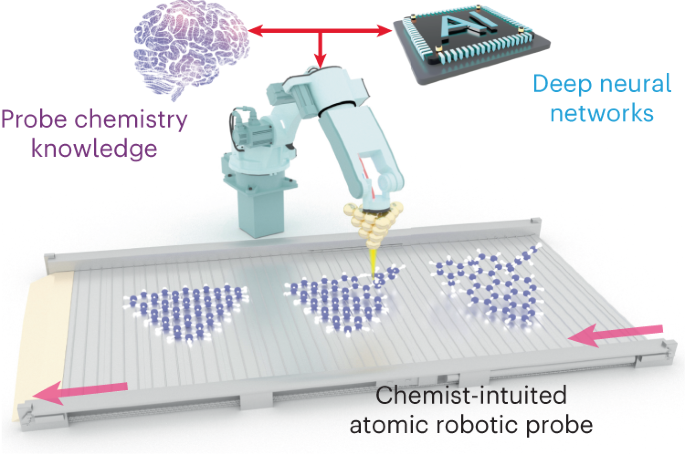2024-03-01 シンガポール国立大学(NUS)
<関連情報>
- https://news.nus.edu.sg/producing-quantum-materials-with-ai/
- https://www.nature.com/articles/s44160-024-00488-7
磁性ナノグラフェンのインテリジェントな合成を化学者主導の原子ロボットプローブで実現 Intelligent synthesis of magnetic nanographenes via chemist-intuited atomic robotic probe
Jie Su,Jiali Li,Na Guo,Xinnan Peng,Jun Yin,Jiahao Wang,Pin Lyu,Zhiyao Luo,Koen Mouthaan,Jishan Wu,Chun Zhang,Xiaonan Wang & Jiong Lu
Nature Synthesis Published:DOI:https://doi.org/10.1038/s44160-024-00488-7
Abstract
Atomic-scale manufacturing of carbon-based quantum materials with single-bond precision holds immense potential in advancing tailor-made quantum materials with unconventional properties, which are crucial in developing next-generation spintronic devices and quantum information technologies. On-surface chemistry approaches, including surface-assisted synthesis and probe-assisted manipulation, are impeded by challenges in reaction selectivity control or restricted by scalability and production efficiency. Here we demonstrate the concept of the chemist-intuited atomic robotic probe by integrating probe chemistry knowledge and artificial intelligence, allowing for atomically precise single-molecule manipulation to fabricate single-molecule quantum π-magnets with single-bond precision. Our deep neural networks not only transform complex probe chemistry into machine-understandable tasks but also provide chemist intuition to elusive reaction mechanisms by extracting the critical chemical information within the data. A joint experimental and theoretical investigation demonstrates that a voltage-controlled two-electron-assisted electronic excitation enables synchronous six-bond transformations to extend the zigzag edge topology of single-molecule quantum π-magnets, triggered by phenyl C(sp2)–H bond activation, which aligns with initial conjectures given by the deep neural models. Our work represents a transition from autonomous fabrication to intelligent synthesis with levels of selectivity and precision beyond current synthetic tools for improved synthesis of organic quantum materials towards on-chip integration.



